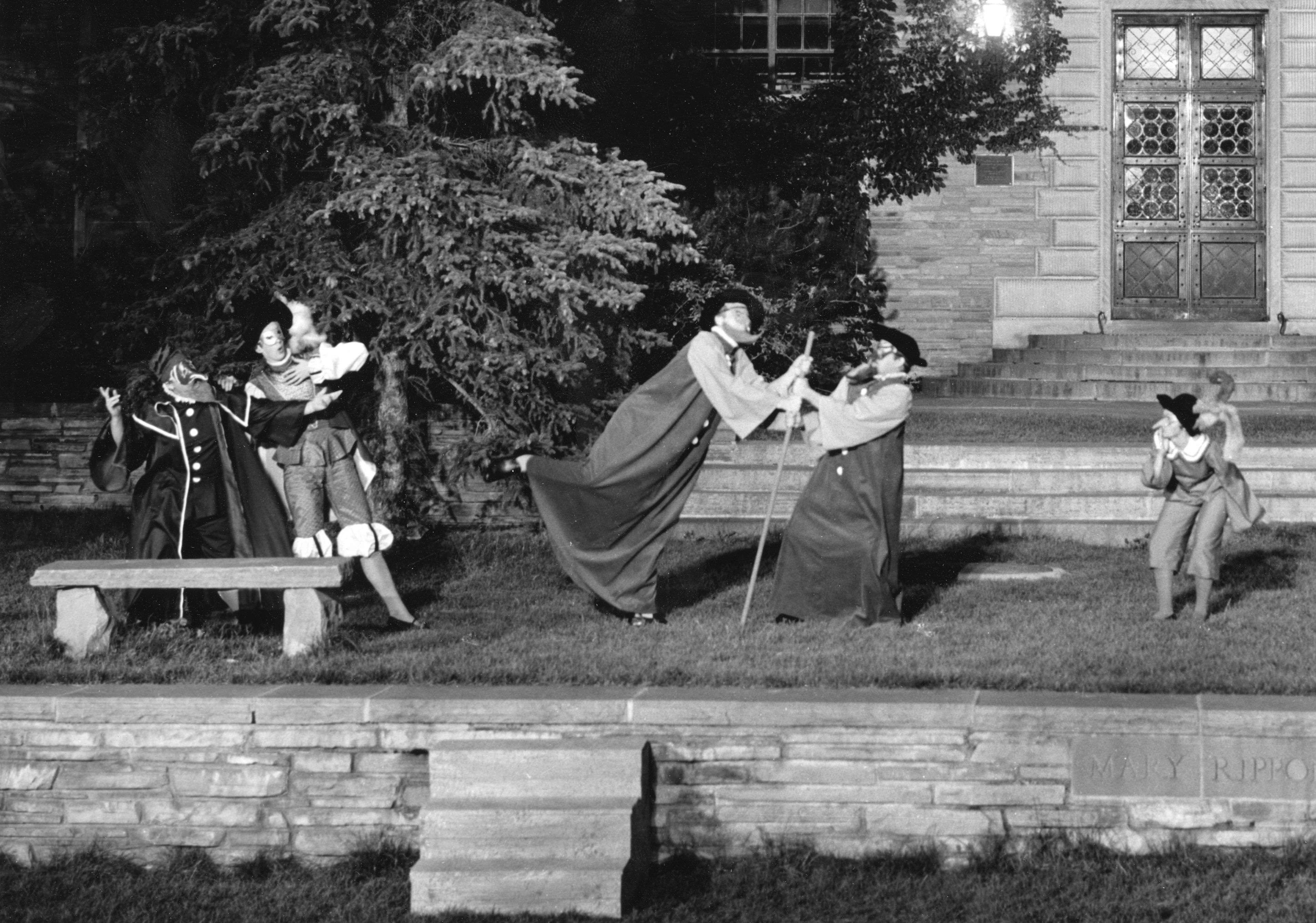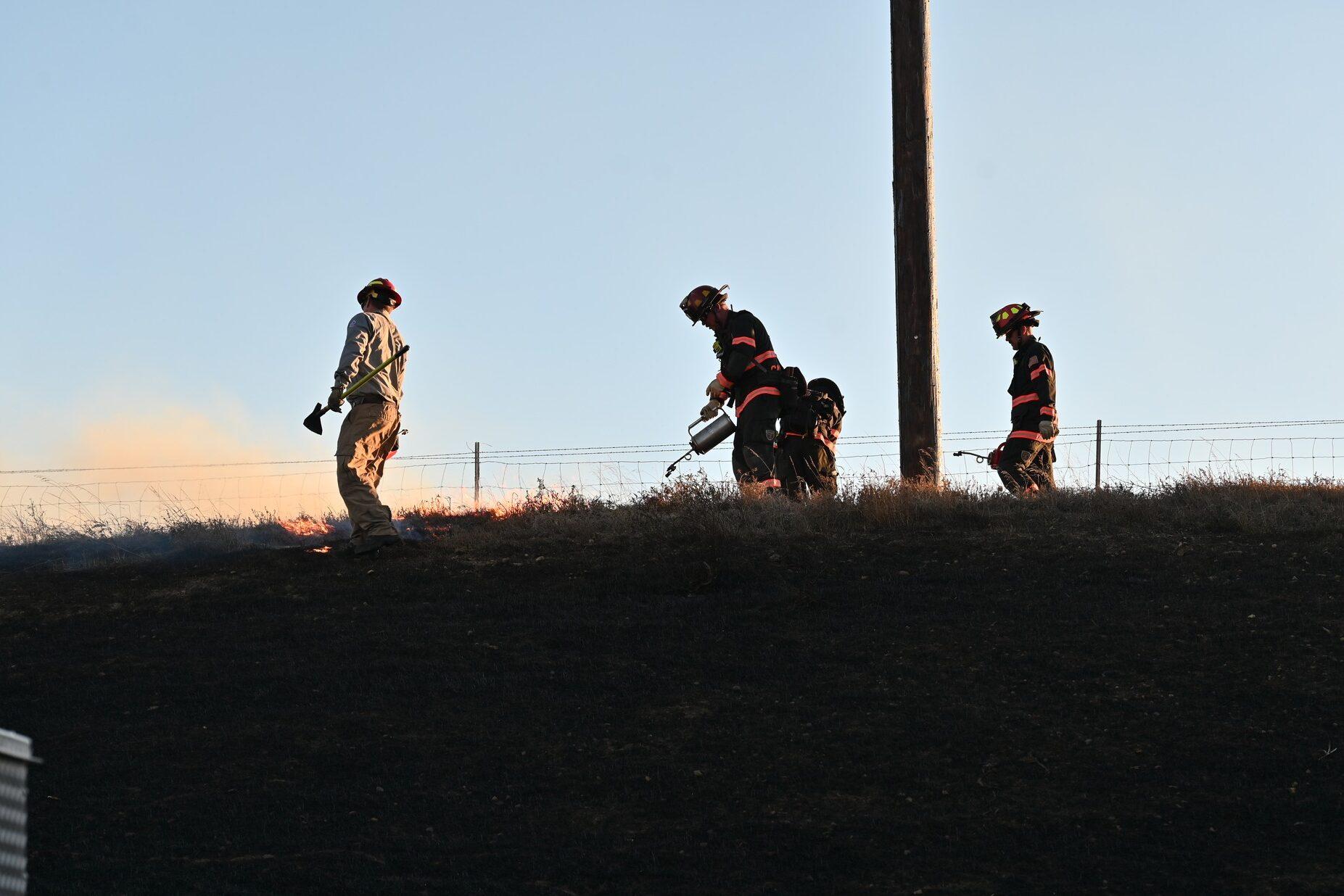
Four hundred years after his death, William Shakespeare still makes headlines. But this time, he’s sharing them.
Last week, Oxford University Press announced it would credit Christopher Marlowe as co-author on Shakespeare’s “Henry IV” trilogy. Marlowe, a 16th Century British poet and playwright, had a fine reputation in his own right.
The authorship on several Shakespeare works has long been up for scholarly debate, but this will be the first time a large publishing company will publish a Shakespeare-Marlowe byline on the “Henry VI” plays. The "New Oxford Shakespeare," a collection of all of the Bard's known works that's out next month, comes after further analysis of both new and old research by scholars.
But the jury is still out for some, including Amanda Giguere. She’s the director of outreach with the Colorado Shakespeare Festival in Boulder, one of the oldest Shakespeare festivals in the country.
“My first thought is that it’s not a definitive study,” says Giguere. “Oxford crediting Marlowe as the co-writer, doesn’t necessarily mean that yes, in fact Shakespeare and Marlowe put their heads together and both intentionally co-wrote these plays.”
She's not alone. A professor of Shakespeare and performance studies at the University of Warwick in the United Kingdom told BBC News, "I don't think [Oxford University Press] putting their brand mark on an attribution settles the issue for most people.
But Giguere says it’s exciting that scholars continue to dig into this history and the new findings shed light on theater's collaborative nature.
How The Bard News Plays In Boulder
The news came shortly before the Colorado festival released its 60th season lineup. Included in those offerings is “Henry VI, Part 3.”
“I think the interesting thing about this study is that it kind of works to debunk the myth of the lone artist, as sort of a solitary playwright, writing a play on his own and then presenting a finished product to a team of actors,” says Giguere.
The co-authorship may make it into a program note or pre-performance lecture. Still, “My instinct is that we will still call it Shakespeare,” Giguere says of “Henry VI, Part 3.” “I don’t think it will necessarily change the way that we credit it, simply because I don’t think all of the evidence is there.”
“Henry VI, Part 3” was last produced at the Colorado Shakespeare Festival in 1969. The closing of the 2017 performances will mark the second time the festival has completed the Shakespeare canon.
Throwback

If you happened to catch the first Colorado Shakespeare Festival in 1958, then the 60th season repertoire will hold a lot of nostalgia.
“As a throwback to our past, we’re actually re-staging the plays that appeared in the very first season,” says Giguere.
Those plays are “Julius Caesar,” “Hamlet” and “The Taming of the Shrew.”
In a review of the festival’s inaugural season titled "Shakespeare in the Rockies: A Happy Beginning," Robert L. Perkons of “Shakespeare Quarterly” wrote "choice of the plays for this year was a strong one, perhaps even a touch bold." While Perkins cited “Julius Caesar” as the “low point, although by no means a failure," he appeared very taken by "Hamlet," writing “full honors… to the remarkable actor who treated the title role as though he had been born to do it.”
That first season attracted about 7,000 patrons over a two-week run. Last summer, the Colorado Shakespeare Festival ran for nine weeks and reports it sold 21,819 tickets.
Work Still Resonates
When the First Folio, the first published edition of Shakespeare's theatrical work, toured to Boulder last August, director of the Folger Shakespeare Library in Washington D.C. Michael Witmore told CPR News even if people can't always understand Shakespeare's language, the plots continue to be relevant.
"I think he's a writer that still speaks to us today," said Witmore. "Whether you're a leader who is making tough choices, you're Henry V and you're going to face your Agincourt; or if you're someone who's getting bad advice, you're like Othello and you have to resist because you will meet your Iago. It's that ability, those stories, to keep speaking back to us that makes Shakespeare such a powerful writer."
Related: “Motley-Minded Maggot Pie”: Make Shakespearean Insults
Giguere feels the same: “Shakespeare’s plays are always a touchstone that we can use to understand who we are.”
If you go: Colorado Shakespeare Festival's 60th season:
- "The Taming of the Shrew," June 11 - Aug. 13
- "Hamlet," June 23 - Aug. 13
- "Julius Caesar," July 7 - Aug. 12
- Tom Stoppard's “Rosencrantz and Guildenstern Are Dead," a comic take on “Hamlet,” retold through the lens of two side characters. July 21 - Aug. 13
- "Henry VI, Part 3," Aug. 6 and 8
All performances take place on the campus of the University of Colorado Boulder.









